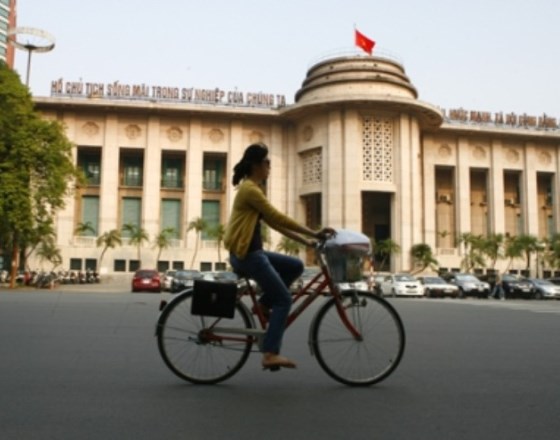
“We have devalued the dong sharply, and there is no reason for us to continue devaluing the dong,” Governor of the State Bank Nguyen Van Binh stated at a government meeting in late August.
The statement has been lauded by economists. “The State Bank has taken prompt reaction when devaluing the dong by one percent and widening the forex trading band by 2 percent. But that is enough,” said Trinh and Thanh, two researchers from Hanoi Economics University, in their report.
In 2010-2013, China had to make heavy investments to maintain its high growth rate.
The business performance in the first half of the year was unsatisfactory with the export turnover down by 8.3 percent in July. In the worst scenario, China would see minus growth rate in the second half of the year.
However, making high investments to maintain high growth rate was not a good solution for long term.
The Chinese government has devalued the yuan in an effort to solve the problems, especially to help boost exports.
However, China’s exports cannot be improved significantly because importers buy Chinese goods not just because of low prices.
If so, China would not see high GDP growth rate, while it would bear higher debts due to the yuan devaluation.
Vietnamese analysts have urged the government to devalue the dong more sharply than the Chinese government devaluation of the yuan so as to gain competitiveness for Vietnamese products in the world market.
However, Trinh and Thanh believe sharp devaluation would do more harm than good.
At present, 60 percent of imports from China are input materials for production, 32 percent are machines and equipment, and 8 percent for consumption.
This means that the cheaper input materials and equipment from China thanks to the weaker yuan will bring benefits to Vietnam.
However, 70 percent of Vietnam’s total export turnover comes from foreign invested enterprises.
Vietnam’s farm produce exports just make up 10-12 percent of total export turnover, while exports to China just account for a lower percentage.
By nature, Vietnam Exports other countries’ products because the Vietnam-made content in export products is very low.
“Why does Vietnam still try every possible means to boost exports, while it is domestic consumption, not exports, which can bring the highest added value?” Thanh asked.
“With the current cost structure of export products, the continued dong devaluation will only benefit China,” he said.
original source: http://english.vietnamnet.vn/fms/business/140931/further-vnd-devaluation-will-only-benefit-china--economists.html
